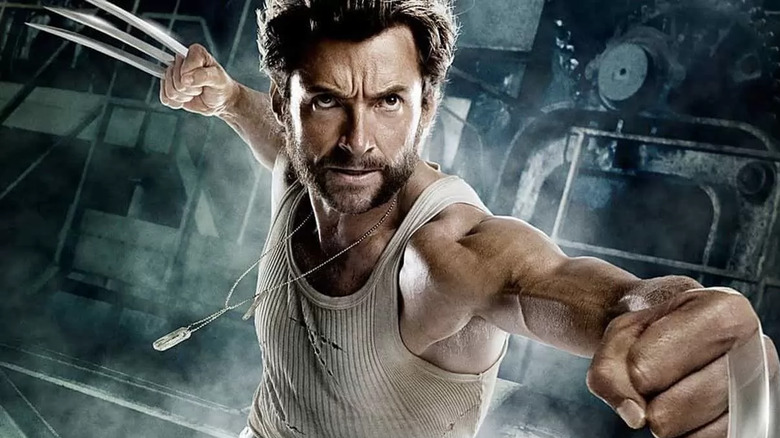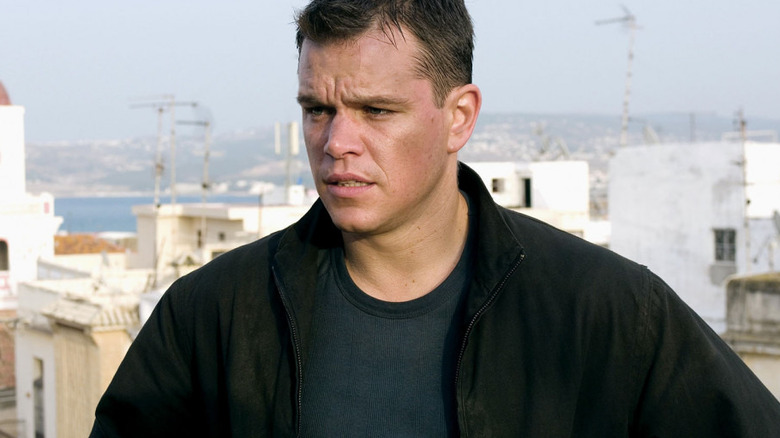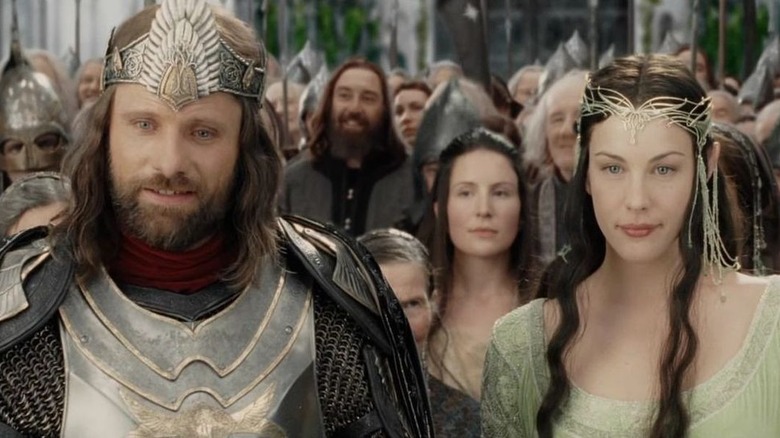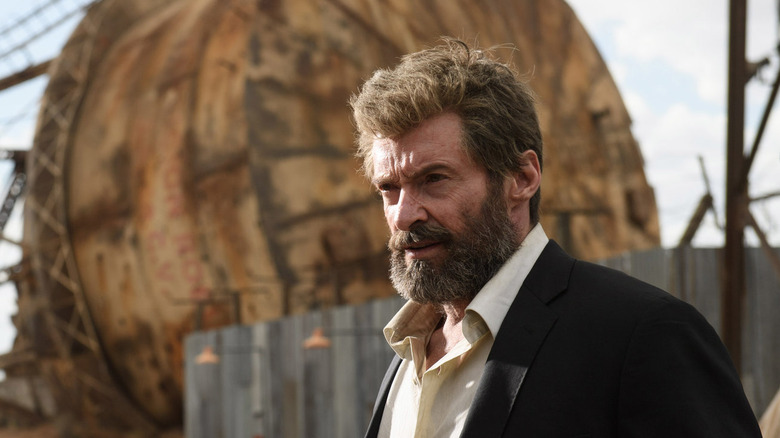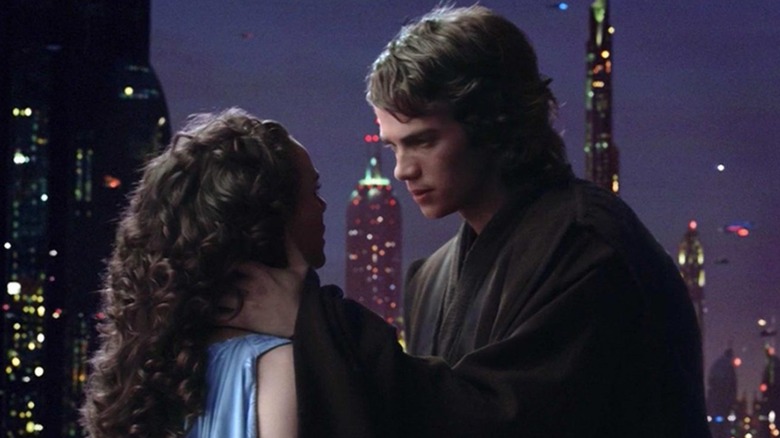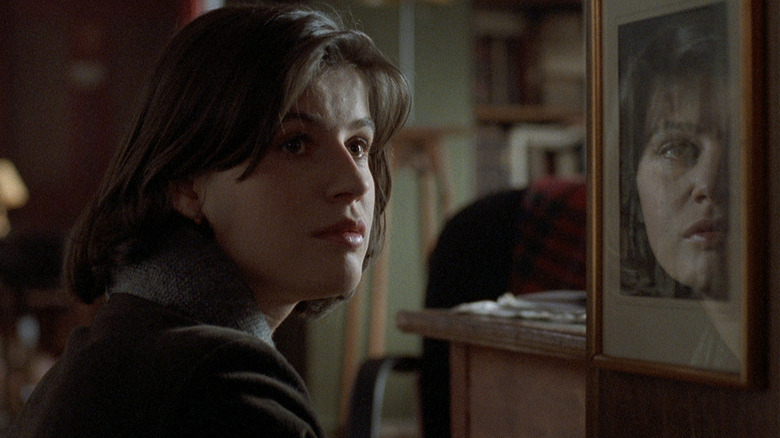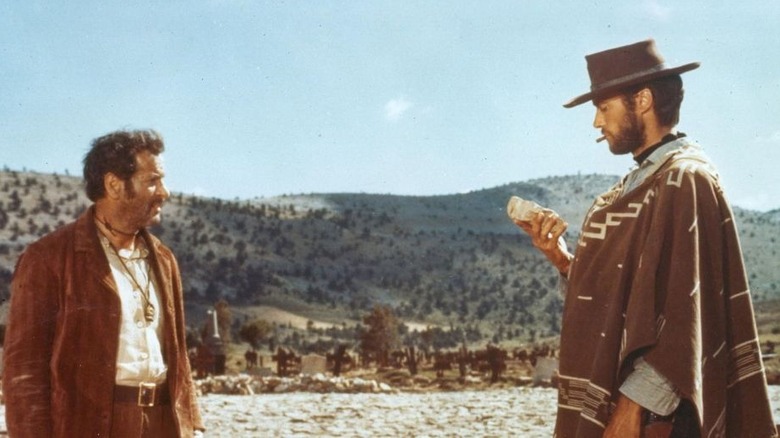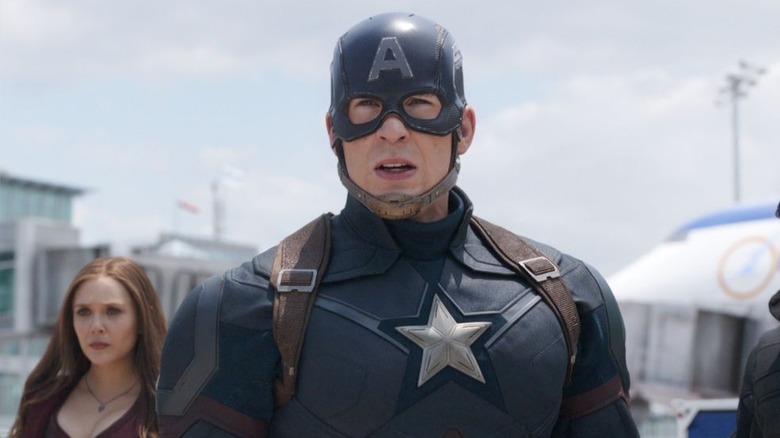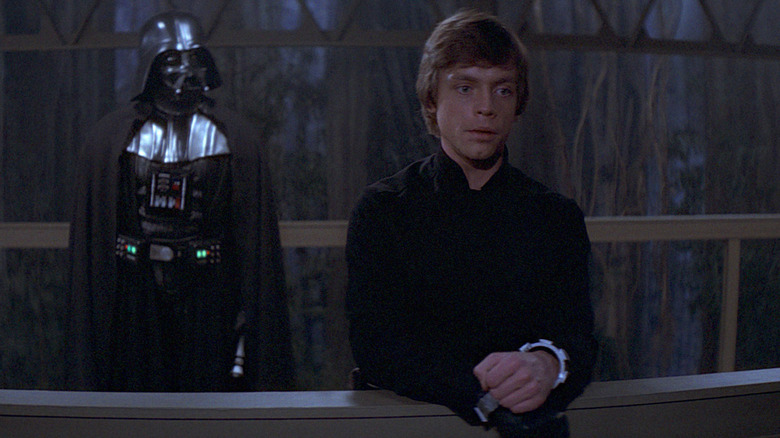Movie Trilogies That Ended With The Best Installment
While there are plenty of disappointing sequels, part twos are often excellent and surpass their predecessors. Some of the greatest movies of all time are sequels, including "The Godfather Part II," "The Dark Knight," "Aliens," and "Evil Dead II," to name a few. It makes sense, as all of the character introductions and worldbuilding were already taken care of in the first film, leaving the sequel to hit the ground running and free to focus on the good stuff.
Now, when it comes to third installments, things get a little dicey. In many cases, the last film in a trilogy ends up being a step down from the middle installment, either because the filmmakers didn't know how to one-up themselves or because they tried too hard to one-up themselves and ended up with a bloated effort mess. Even when a third film isn't a complete letdown, the best result is often that it's merely as good as the first or second film, not managing to quite exceed either one. However, there are those rare instances when a trilogy manages to go out on top and finish on a movie that is better than both previous installments.
Some of these trilogies do technically have current or upcoming follow-ups, while others are more meta or spiritual trilogies, but each one can more than make a case for itself as a self-contained trio of films and is generally accepted as a trilogy.
Bourne trilogy (2002-2007)
Combining James Bond-esque espionage with a John Wick-style one-man army (back when the latter was still somewhat novel and wasn't a genre unto itself), 2002's "The Bourne Identity" seemed like a new kind of action film. Based on the novel by Robert Ludlum, who unfortunately died the previous year and never got to see his creation brought to life on the big screen, the movie had all the makings of a blockbuster film franchise, and sure enough, a sequel would follow just two years later.
"The Bourne Supremacy" is generally seen as an equal to its predecessor but doesn't quite rise above it, with only outlets like Reel Film Reviews, who were underwhelmed with the original, proclaiming the sequel as superior. This time, the series took three years before delivering another entry, and it was time well spent, as "The Bourne Ultimatum" received significantly higher critical praise than the other two films and was called "the finest installment of the Bourne trilogy" by Rotten Tomatoes.
Technically, the series continued after "Ultimatum," though "The Bourne Legacy" doesn't feature the title character at all. Uproxx sums up 2016's "Jason Bourne" best, calling it "a completely unnecessary sequel." The original trilogy is the only one that matters.
The Lord of the Rings trilogy (2001-2003)
Perhaps the most common nitpick of the entire "Lord of the Rings" movie trilogy is that the last entry, "Return of the King," concludes with a long succession of endings. Depending on who you ask, the actual number varies. Den of Geek makes the case for there being seven endings in total, claiming that all of them were well-earned and completely necessary since wrapping up such an epic cinematic event required the time and space that "Return of the King" gave it.
To be clear, all three "Lord of the Rings" films are excellent, and picking a best or worst entry is largely going to come down to finicky personal opinion. Looking at review scores, "Two Towers" does edge "Return" out slightly to be the best-rated of the three. But there's also no overlooking that "Two Towers" only won two Oscars out of a mere four nominations, while "Return of the King" finally earned the franchise its "Best Picture" Oscar on top of winning in all ten other categories for which it received nominations. It is tied with only two other movies for total Oscar wins, though those other two also lost in a few categories (per Gold Derby).
Being the only movie in history to go 11 for 11 at the Academy Awards definitely goes a long way in making the case that "Return of the King" is the best of the "Lord of the Rings" trilogy.
Wolverine trilogy (2009-2017)
The "X-Men" movie franchise has been one of extreme highs and lows, with excellent entries like "X2" and "Days of Future Past" followed up by duds like "The Last Stand" and "Apocalypse." In terms of the solo movies, longtime fan favorite Wolverine got better films for each entry in his standalone trilogy — though things had nowhere to go but up after the dreadful "X-Men Origins: Wolverine." "X-Men Origins: Wolverine."
The second entry, "The Wolverine," wasn't amazing by any stretch, but it was generally well-received, except for its over-the-top final act and poor depiction of Deadpool — though, obviously, that last issue would eventually be more than rectified by that character's own beloved solo movies. Nevertheless, Wolverine was saving the best for last with "Logan," the highest-rated of all the X-Men films so far, which even earned the first screenwriting Oscar nomination ever for a superhero movie (per Insider). It remains one of only a select few superhero movies to get nominated in a category besides special effects, costumes, or sound.
"Logan" is not only the best of the Wolverine trilogy by a considerable margin, but it also remains a high-water mark for superhero movies in general.
Star Wars prequel trilogy (1999-2005)
The long-awaited "Star Wars" prequel trilogy really went through it, from previously unseen levels of hype to equally unseen levels of backlash to eventual reappraisal by many fans of the overall franchise. While "The Phantom Menace" was seen as the weak link then and continues to be seen as the weak link now, what's been left up for debate is whether "Attack of the Clones" or "Revenge of the Sith" is the stronger of the other two installments.
Though it's easy to misremember the reception of the entire trilogy as overwhelmingly negative, "Revenge of the Sith" was Certified Fresh by Rotten Tomatoes, where it was called "thrilling and often poignant." It was a surprisingly well-received end for a trilogy that started with so much contempt leveled against it — and, unfortunately, its actors as well (per Wired). "Revenge of the Sith's" critical reception far exceeds that of the movie that concluded the sequel trilogy, "The Rise of Skywalker," and even outscores the generally well-liked "Solo: A Star Wars Story." Not bad for a movie that is forever connected to the trilogy where a beloved franchise first saw its fanbase sour on it and, in some cases, become incredibly toxic about it.
Three Colours trilogy (1993-1994)
Many trilogies, perhaps even most of them, grow organically out of the success of the first two movies. Sequels are made because the first movie is popular enough to warrant it, and a third installment is made because the sequel was as well. However, some trilogies are planned from the start, with all of the films made at almost the same time and released in succession.
Such is the case with the "Three Colours" trilogy from Polish filmmaker Krzysztof Kieślowski. He planned all three movies out from the start in what The Guardian calls an "arthouse event," naming each one after one of the colors of the French flag: "Blue," "White," and "Red." The unifying themes of the series are love and loss. The films deal with various aspects of those themes while referencing each installment's respective titular color with filters, lighting, and physical objects within the scenes.
All three entries are acclaimed, but the final installment, "Red," managed a 100 percent score on Rotten Tomatoes. It also earned Academy Award nominations for best director, screenplay, and cinematography at a time when it was still rare for a movie produced outside of the U.S. to receive Oscar nominations in categories not dedicated to foreign film (per Hitfix).
Dollars Trilogy/Man with No Name Trilogy (1964-1966)
It's not often that all three installments of a trilogy are each considered all-time great films. Even the best trilogies typically have at least one entry that is merely pretty good. But when it comes to "A Fistful of Dollars," "For a Few Dollars More," and "The Good, the Bad and the Ugly," that's three movies that are each certified masterpieces on their own but come together to become one of the best trilogies of all time.
At times referred to as the "Dollars Trilogy" due to the first two movies' titles, and at other times the "Man with No Name Trilogy," as Clint Eastwood's nameless protagonist appears in all three films, the films were directed and co-written by Italian filmmaker Sergio Leone. It not only put him on the map, but it also made Eastwood a star in his first leading role. While the original is excellent, each subsequent entry in the Spaghetti Western trilogy was somehow even better than the one before it, culminating in "The Good, the Bad and the Ugly," a movie for which the website What Culture has 50 reasons why it's the greatest film of all time.
Some go to bat for "For a Few Dollars More" and assert that it is the best of the three, but it's hard not to give the edge to "The Good, the Bad and the Ugly" for the simple fact that it ends with one of the greatest gun duels in movie history. It's that sense of epic closure that "For a Few Dollars More" doesn't have that gives "The Good, the Bad and the Ugly" the win, even if it's only by a slim margin.
The Steve Rogers Captain America trilogy (2011-2016)
Several superheroes have gotten their own series within the Marvel Cinematic Universe, and the second one to make it to a trilogy after Iron Man was Captain America. After avoiding the sophomore slump that Iron Man and Thor experienced — with the second Captain America film being the excellent "Captain America: The Winter Soldier" — things were set up nicely for his trilogy to do great things with its third installment.
When it was announced that the third Captain America movie would be based on the famed "Civil War" arc from the comics, it was all but guaranteed that the movie would be special. And special it was. For a time, it was among the top five highest-rated MCU movies. It still sits in the upper echelon of the overall MCU, one of the first indications that the meta franchise could pull off movies with large casts of superstar characters without feeling bloated or bogged down.
With the Chris Evans/Steve Rogers version of the character effectively finished in the MCU, the next Captain America movie, "Brave New World," which follows Sam Wilson in the title role. Regardless of your feelings about that installment, the prior Captain America movies will forever remain a self-contained trilogy, and "Captain America: Civil War" will always be its best installment.
Star Wars original trilogy (1977-1983)
Before you think we only went with "Return of the Jedi" over "The Empire Strikes Back" for the attention and the clicks, we aren't the only ones who feel that the original "Star Wars" trilogy ended on the best of the three films. The website Culture Slate has a feature on why it's the best "Star Wars" movie to date, a sentiment echoed by Michael Bowen of the Boston Globe and Kevin Drum of Mother Jones. And let's not forget that iconic debate in the movie "Clerks," in which Dante's (Brian O'Halloran) picking "Empire" over "Jedi" was declared a blasphemous statement by friend and co-worker Randal (Jeff Anderson).
With some preemptive support from others out of the way, it's time to dig a little deeper into why we think "Jedi" is the best movie of Episodes IV through VI. It features tons of great Darth Vader moments and lines; the triumphant display on Tatooine of how far Luke (Mark Hamill) has come in his training; the pivotal treetop scene where the complex relationship triangle of Luke, Leia, and Han finally straightens itself out in poignant fashion; and, of course, the beyond-epic battle between Vader, Luke, and the Emperor. "Jedi" is also visually superior to and more polished than the other two films, owing to the experienced crew. Not to mention the still-developing Mark Hamill, Carrie Fisher, and Harrison Ford showing noticeable improvement from their performances in the previous films.
Lastly, "Jedi" haters love to rag on the Ewoks, but they aren't in the movie nearly as much as people remember — especially pre-Special Edition. They also weren't that bad, honestly.
